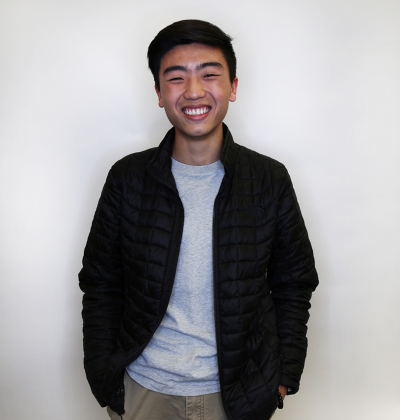
So, Apparently Supercomputers are Real
Growing up, I figured "supercomputer" was just one of those words that the hacker-nerd threw out during action movies to sound smart. You know? I thought "supercomputer" was just one of those fake cool-sounding words like "mainframe," "cyberspace," or "secure password." It was a word that felt more villain-esque than real. Until I found out that Dartmouth had one.
Yeah. Dartmouth has a supercomputer. Three, to be exact. Go figure.
Basically, I've started doing research for the Geisel School of Medicine (Dartmouth's resident med school), specifically the Wang lab for Professor Xiaofeng Wang. Now, I can't go into the specifics of what I'm actually researching, since I'm not sure that I can divulge that, but I will say that this is the first time I'm learning to use advanced coding languages like Bash and Unix, and the first time that I'm working with a, you know, supercomputer. And as someone who has done work his whole life on a laptop whose internal cooling fan is louder than the music I'm trying to listen to, well, let's just say that I'm equal parts woefully lost, and very, very intimidating.
You see, I'm a biomedical engineering major, but I'm by no means a computer guy. Real talk, the only academic experience I've had with computers is half of an introductory computer science sequence. Don't get me wrong, I did well in the class and I enjoy it, but the leap from "computer science 1" to "assisting with the forefront of cancer research" isn't exactly an intuitive leap. Really, it's been a terrifying one. It's a lot of trouble shooting, and a really strong feeling that I have no idea what I'm doing. If I didn't have as much help as I did, there would be no way I would have lasted even a week doing this kind of research.
But that's the thing. I have been given so much help. Both from the principal investigator (the head professor) himself, and the people in the lab. One of the first things my professor did for me when I was first onboarded in the lab was set up weekly meetings with him to discuss my progress, and introduce to me a graduate student to work with. And there's no way I can explain here how grateful I am for her. Seriously. I've texted her a question at 4 in the morning completely expecting to get an answer in the morning. Because even if she was still awake at 4 in the morning, well, it's pretty evident that she clearly is working on something much more important than whatever I have to ask. And yet, within 45 seconds, an answer.
Trust me on this, but I'm a hard-headed fool. Before asking her, I often spend hours on a single problem, trying to figure out what went wrong. But to see her solve that with two sentences and 30 seconds makes me realize not just that it's okay to ask for help, but also makes me extremely grateful to both work with her and at work at a place like Dartmouth.
Often we talk about access to opportunities. And Dartmouth, being an Ivy League institution, has no shortage of that. But to believe in me enough to give me the help I need to grow and learn lets me take full advantage of what I've been so lucky to have been given.


















